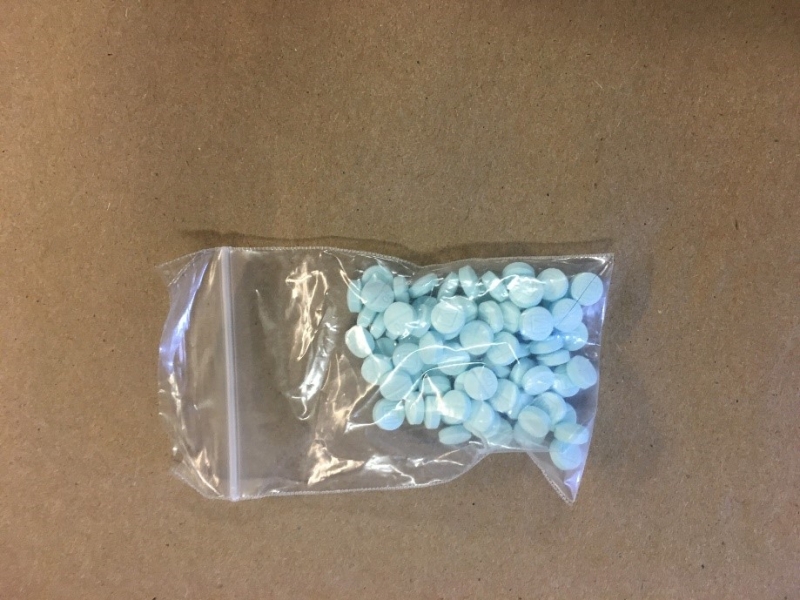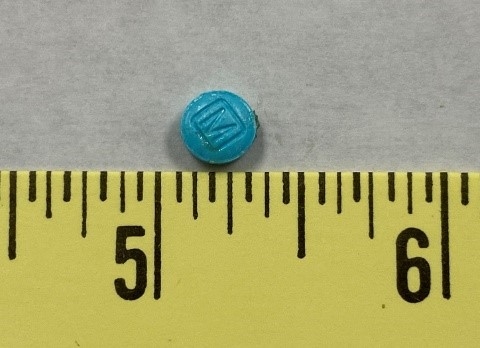Related Content
Press Release
Press Release
PORTLAND, Ore.—Acting U.S. Attorney Scott Erik Asphaug announced the unsealing of an indictment today against a Sinaloa-based drug trafficker for his role in trafficking fentanyl, heroin, and methamphetamine from Mexico to the Pacific Northwest.
Efrain Mendivil Figueroa, 41, of Sinaloa, Mexico, has been charged with conspiracy to distribute heroin, methamphetamine, and fentanyl and conspiracy to commit money laundering.
The announcement of charges against Figueroa follows the U.S. Department of Treasury’s Office of Foreign Assets Control (OFAC) designation of Figueroa as a Specially Designated Narcotics Trafficker pursuant to the Foreign Narcotics Kingpin Designation Act (Kingpin Act). OFAC identified Figueroa as a fentanyl, heroin, methamphetamine, and cocaine distributor and transportation coordinator for the Jesus Gonzalez Penuelas Drug Trafficking Organization (aka “Gonzalez Penuelas DTO”). OFAC also designated the construction company City Plaza, Sociedad Anonima de Capital Variable, based in Guasave, Sinaloa for being owned or controlled by Figueroa. According to OFAC, the Gonzales Penuelas DTO is one of the largest raw opium gum and heroin sources of supply in northern Mexico, and increasingly a major distributor of fentanyl.
“Efrain Figueroa’s drug trafficking organization has deep ties in the Pacific Northwest. Our charges allege he is a long-term, active trafficker of heroin, methamphetamine, and fentanyl from Mexico to Oregon. Together, these drugs, particularly fentanyl, have caused immeasurable harm to the public safety and health of communities throughout our state,” said Acting U.S. Attorney Asphaug. “We applaud OFAC for designating Jesus Gonzalez Penuelas as a Significant Foreign Narcotics Kingpin and Figueroa as a Specially Designated Narcotics Trafficker under the Kingpin Act for the significant danger they pose to the U.S. and its citizens.”
“This bold action highlights the DEA’s ability and intention of holding accountable the dangerous Mexican Drug Trafficking Organizations who reside within our borders, but also those operating in Mexico who believe they are untouchable,” said DEA Special Agent in Charge Frank Tarentino. “DEA makes it a priority to identify and target drug traffickers who flood our city streets with poison and deny these drug trafficking organizations the profits of their illegal trade responsible for fueling the opioid epidemic. We will continue to work closely with our international partners to bring Efrain Figueroa to justice and dismantle drug cartels like Gonzales Penuelas DTO.”
“Fentanyl, particularly in the form of counterfeit prescription pills, is the region’s emerging drug threat and poses a significant danger to our communities. The increase in fentanyl supply and use over the past 2 ½ years in Oregon is reflected in the number of law enforcement trafficking investigations, drug seizures, overdose hospitalizations and, tragically, overdose deaths,” said Oregon-Idaho HIDTA Executive Director, Chris Gibson. “The Oregon-Idaho HIDTA will continue to support the cooperative efforts of our treatment, prevention and law enforcement partners with the ultimate goal of reducing the demand for and supply of the dangerous drugs that sadly wreak havoc in the lives of an increasing number of Oregonians.”
According to the indictment, beginning in at least August 2018, Figueroa and several associates are alleged to have conspired with one another to possess and distribute heroin, methamphetamine, and fentanyl in Oregon and elsewhere. As part of their drug trafficking scheme, the group maintained various locations for the purpose of storing and packaging narcotics and used vehicles to transport and distribute product. The group would also smuggle bulk quantities of U.S. currency across state and international borders to facilitate drug transactions and engaged in money laundering to conceal their trafficking proceeds.
Acting U.S. Attorney Asphaug and Special Agent in Charge Tarantino made the announcement.
This case was investigated by the Drug Enforcement Administration (DEA) and the High Intensity Drug Trafficking Area (HIDTA) Interdiction Taskforce with assistance from the FBI and Homeland Security Investigations. It is being prosecuted by Steven T. Mygrant, Assistant U.S. Attorney for the District of Oregon.
The Oregon HIDTA program was established by the White House Office of National Drug Control Policy in June of 1999. In 2015 the program expanded into Idaho and was renamed the Oregon-Idaho HIDTA. The Oregon-Idaho HIDTA consists of 16 counties, including Oregon’s Clackamas, Deschutes, Douglas, Jackson, Josephine, Lane, Linn, Malheur, Marion, Multnomah, Umatilla and Washington counties, and Idaho’s Ada, Bannock, Canyon, and Kootenai counties.
This case is part of an Organized Crime Drug Enforcement Task Forces (OCDETF) Strike Force Initiative, which provides for the establishment of permanent multi-agency task force teams that work side-by-side in the same location. This co-located model enables agents from different agencies to collaborate on intelligence-driven, multi-jurisdictional operations to disrupt and dismantle the most significant drug traffickers, money launderers, gangs, and transnational criminal organizations.
Opioid abuse affects communities across the nation. The Centers for Disease Control and Prevention reports that in 2019, its most recent data, there were 70,630 drug overdose deaths in the U.S. Opioids and synthetic opioids were alone responsible for 49,860 overdose deaths or nearly 71% of all overdoses. Drug overdose is now the leading cause of injury or death in the United States.
Fentanyl is a synthetic opioid 80 to 100 times more powerful than morphine and 30 to 50 times more powerful than heroin. A 3-milligram dose of fentanyl—a few grains of the substance—is enough to kill an average adult male.
The availability of illicit fentanyl in Oregon has presented public safety and health officials with a host of new challenges, including a dramatic increase in overdose deaths. Fentanyl-related overdose deaths in Oregon have doubled between 2016 and 2019. In 2020, most fentanyl seized in Oregon was in the form of counterfeit prescription pills, such as Oxycodone, commonly referred to as M-30s.
If you or someone you know suffers from addiction, please call the Lines for Life substance abuse helpline at 1-800-923-4357 or visit www.linesforlife.org. Phone support is available 24 hours a day, seven days a week. You can also text “RecoveryNow” to 839863 between 8am and 11pm Pacific Time daily.


